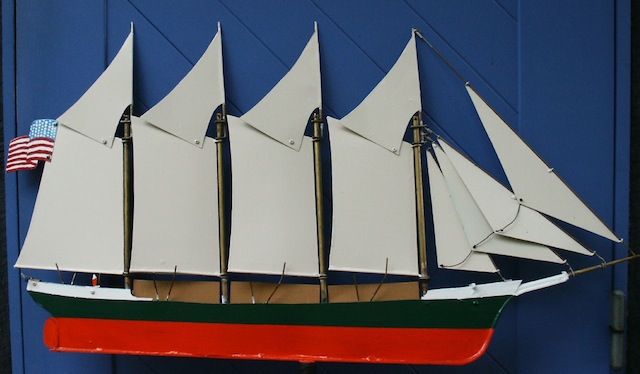 |
| Washington State fishermen with cooked Dungeness crab. Photos from the archives of the S. P. H. S.© |
"Haven't you read stories in which sturdy old salts go out in stormy, blizzardy weather to lift the lobster and crab traps? Don't they always thrill you, make you feel somehow as if your soft life lacked something? When Amundsen, Byrd, Stefanson, and the Lofoten fishermen go off on their wild ways, aren't you drowned with envy and yearning to go off with them, to endure hard things, to feel blasts of icy winds on cheeks already nearly frozen? The hard things. Only they are worth doing, really.
Not that the little storm we are heading into now is dangerous, or that sitting in the back of Mr. Thompson's skiff while he lifts his crab traps is very hard. But it feels as if one were getting close to reality, anyhow. I am shivering half with delight, half with a blowing rain that is not far from being sleet, as one by one the big traps come out of the water, are emptied into the boat.
...Word came last night that I might go at 8 AM this morning with Mr. Thompson, a Dane, to lift the crab traps. It rained all night, so Thompson goes ahead on the trail with a stick, knocking off as much water as possible.
The boat lay the the top of the beach. Thompson bailed it out, tipped it to let all the water run out, and we dragged it down over the gravel into the water, where it began to leak again. With an old putty knife that he keeps handy for the purpose, the master of the skiff stuffed old rope into the cracks and we put to sea, the wind having died down somewhat under the lash of the rain.
In Thompson's early days crab fishing flourished. There was a crab cannery at Blaine. He ran
two hundred traps then. He and his young wife making the traps out of heavy cord netted and fitted over iron rods to make a sort of net coop into which the crabs came for the bait, and from which they could not escape again. The traps are made just the same yet, except that instead of rope netting they use chicken-wire netting, using rope only for the trapdoor that is opened and closed so much that wire would break. Now [1930] they do not use bait, either. Mr. Thompson having found that bait attracts too many little ones, and that the crabs will seek refuge out of storms in the trap, making bait unnecessary.
two hundred traps then. He and his young wife making the traps out of heavy cord netted and fitted over iron rods to make a sort of net coop into which the crabs came for the bait, and from which they could not escape again. The traps are made just the same yet, except that instead of rope netting they use chicken-wire netting, using rope only for the trapdoor that is opened and closed so much that wire would break. Now [1930] they do not use bait, either. Mr. Thompson having found that bait attracts too many little ones, and that the crabs will seek refuge out of storms in the trap, making bait unnecessary.
Whereas he used to catch a hundred dozen crabs in a day, selling them for 18 cents a dozen, now he sets only twenty-nine traps, catches ten, twenty, thirty dozen in a week; and sells them locally to campers on the beaches, getting a dollar a dozen for the smallest. He goes out Saturday morning to lift his traps, leaves the scratching, crawling, fellows in his boat overnight, cooks them Sunday morning and sells them hot from his boiler there on the beach, campers coming from every direction to get them.
 |
| Crab trap with cord netting, and tarred, wooden crab pot buoys used by Anacortes fisherman, 1930s. From the collection of the S. P. H. S. |
We rowed out to the far end of the trap line where a tarred cedar buoy stands on end to mark the place. It bobs in and out of the water with the waves, but the master rowed straight to it, caught the rope and hung it across his bow. He laid his oars into the boat, took his position in the bow, pulled himself along the trap line, came after a few fathoms of rope to the descending line, which he pulled up into the boat. On the end of that line is the tarred net box, in the bottom of which a tangle of dark, purplish, creamy-legged crabs hanging on to each other, refuse to be ejected.
The wind is coming stronger and stronger. I shelter my notebook under my coat. My fingers are so cold I can hardly write. There are twenty-eight more traps. One by one they come aboard, discharging their fierce loads, go overboard again on the other side of the boat to wait for other hapless leggy fellows in their turn. At last, after more than an hour, the last trap comes up, we row the whitecaps home again. The tide is out so far that I am carried ashore astride the back of the fisherman in hip boots, set down on the wrinkled sand to reflect upon the delights of being a Puget Sounder.
Above words by June Burn for her column Puget Soundings, 1930





No comments:
Post a Comment